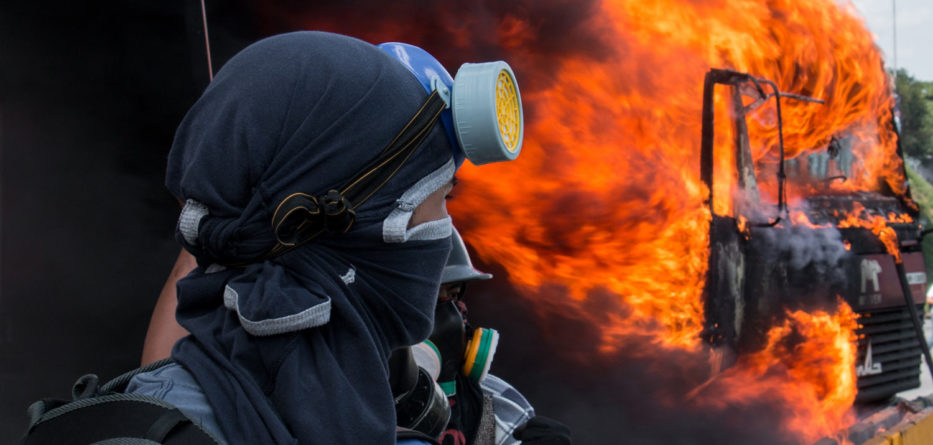Caracas – Every time there’s a blackout, Venezuelans know they have lost much more than the light in their light bulbs, because there’s also no telephone service, no Internet connection, no pumping of drinking water, no more of many things that make life easier.
Power outages have been common in regions far from Caracas for many years, but since they have become more frequent and prolonged everywhere in Venezuela, the petroleum-producing nation loses some $500 million every day that productive work is suspended by the government, according to estimates of the National Assembly legislature.
But beyond the money, there are many other elements disrupted by the ongoing electricity crisis that began last March 7:
-Water
Though the majority of Venezuelans can’t be sure of having running water every day, the pipelines go from wet to dry when a blackout strikes and it is impossible to turn on the pumps that get water to the communities.
Millions of Venezuelans go down to nearby rivers and springs to get the water they need to wash themselves or clean their houses, while others try to fill containers with the scant rainfall.
After the power cuts of recent weeks, the government has set up water distribution points and water wagons, an option that some citizens pay for out of their own pockets at prices sometimes exceeding $200.
-Internet
Almost all Venezuelans use local Internet providers, which collapse during the blackouts that can last 24, 48, or more than 72 hours.
Non-government organizations estimate that since March 7, on at least five occasions, 90 percent of Venezuelan Internet users have been disconnected by electricity cuts.
Never sure of success, citizens go to specific points in their cities where they are most likely to receive a signal, however weak, that will allow them to use social networks or to communicate on WhatsApp.
-Telephone
Once the source of power has been interrupted, it becomes an uphill job to make a telephone call. Home devices keep working for several hours but only for short-distance calls.
The functioning of mobile phones in such cases is almost null and void, and having a little luck depends on the area and the amount of time the batteries will last.
-Transportation
With thousands of buses paralyzed for lack of replacement parts, the few that continue operating are packed with passengers, while most people are forced to walk kilometers (miles) during the untimely power outages.
Car-owners can spend hours waiting in line to fill up their tanks at the few gas stations still open.
In the case of Caracas, when the underground subway suddenly goes out of action, the hundreds of thousands of people who use it daily have to go upstairs to the sidewalk and the collapse is all the more visible.
-Food
In a country where the availability of consumer goods is dwindling, and whatever is available is very expensive for most people, losing a kilo (pound) of meat due to a lack of refrigeration is a cause for concern.
-Banking
During blackouts, banks stay closed, the ATMs don’t work, and without the Internet, there’s no more online banking.
-Education
Students miss classes because of power cuts in their communities, or for the lack of water, transportation, or for any other problem of the crisis.
-Health
Problems in the health system, such as the scarcity of medicines, only get worse when there’s no electricity. And forget doctor appointments and elective surgery, forget operating rooms and emergency rooms, none are available until the lights come on.






